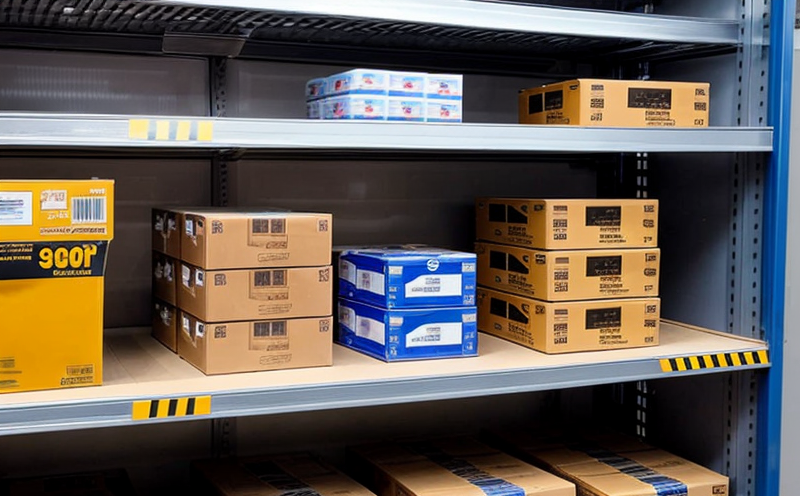Ink Adhesion and Smear Resistance Testing
The integrity of medical device packaging is critical to ensure the safety and efficacy of the devices. Among the various tests that need to be conducted, ink adhesion and smear resistance testing play a crucial role in ensuring that the printing on the packaging remains intact throughout its shelf life. This service ensures that printed labels do not peel or smudge under typical environmental conditions, thereby maintaining product integrity and consumer trust.
The process involves subjecting the printed surface to various stress tests designed to mimic real-world scenarios such as handling, storage, transportation, and use. These tests are conducted using standardized methods like ISO 11738-2 and ASTM D4541 which outline specific procedures for evaluating ink adhesion and smear resistance.
For instance, the peel test method prescribed in ISO 11738-2 involves applying a constant force to detach the printed layer from the substrate. The results are then analyzed based on the area of delamination or peeling observed. Similarly, ASTM D4541 outlines procedures for smear resistance testing which assesses how well the ink resists rubbing and smudging.
These tests are essential not only for ensuring compliance with regulatory standards such as FDA 21 CFR Part 820 but also for enhancing product quality. Inadequate ink adhesion or excessive smear resistance can lead to compromised packaging, which in turn could affect the sterility of medical devices and their overall usability.
Our testing facility uses state-of-the-art equipment capable of simulating a range of environmental conditions including humidity, temperature fluctuations, and mechanical stress. This allows for precise control over variables that might influence ink adhesion and smear resistance. Our team of experts ensures that each specimen is prepared according to international standards, guaranteeing accurate and reliable test results.
The importance of this testing cannot be overstated. It contributes significantly towards ensuring patient safety by reducing the risk of contaminated products reaching consumers. Moreover, it helps manufacturers meet stringent quality control measures thereby enhancing brand reputation and consumer confidence.
- Peel resistance tests
- Ink adhesion on various substrates
- Evaluation under different environmental conditions
- Compliance with ISO 11738-2, ASTM D4541, FDA regulations
Why It Matters
The integrity of medical device packaging is paramount for ensuring the safe and effective use of these devices. Any compromise in this integrity can lead to contamination or degradation of the product, posing significant risks to patients' health and safety.
Ink adhesion and smear resistance testing directly impacts the performance and reliability of the printed information on the packaging. Clear labeling is crucial for proper identification and handling of medical devices. Poor ink adhesion could result in mislabeling or illegible text which can lead to errors during manufacturing, distribution, and ultimately at point-of-care.
From a regulatory standpoint, compliance with standards such as ISO 11738-2 and ASTM D4541 is mandatory for many medical device manufacturers. These tests not only help in meeting these legal requirements but also serve as a benchmark for quality assurance within the industry.
The results of these tests provide valuable insights into the durability and longevity of printed information on packaging materials. This knowledge allows manufacturers to make informed decisions about the type of ink and substrate to use, ensuring that they meet both functional and aesthetic standards required by end-users.
Benefits
The benefits of comprehensive ink adhesion and smear resistance testing extend beyond mere compliance; they contribute significantly to enhancing product quality and patient safety. Here are some key advantages:
- Enhanced Product Integrity: Ensures that printed labels remain intact throughout the shelf life, preserving important information.
- Regulatory Compliance: Guarantees adherence to relevant standards like FDA 21 CFR Part 820 and international norms such as ISO 11738-2 and ASTM D4541.
- Patient Safety: Reduces the risk of contaminated products reaching consumers, maintaining high standards in healthcare.
- Brand Reputation: Maintains consistent quality across all products, bolstering trust among customers and stakeholders.
By investing in robust testing protocols, manufacturers can ensure that their medical devices are reliable and safe for use. This not only protects patients but also strengthens the manufacturer's reputation as a leader in innovation and quality assurance.
Customer Impact and Satisfaction
Ink adhesion and smear resistance testing significantly impacts customer satisfaction by ensuring that printed information on medical device packaging remains clear, legible, and intact. This is crucial for healthcare providers who rely on accurate labeling to identify products correctly.
- Patient Safety: Clear labels prevent mix-ups which can lead to incorrect administration of medications or improper use of devices.
- Ease of Use: Reliable printing helps in quick identification and proper handling, enhancing the overall user experience.
- Consistency: Consistent quality across all products builds trust among healthcare professionals and patients alike.
Our testing services provide peace of mind to customers by validating that packaging meets stringent standards. This not only supports compliance but also demonstrates a commitment to excellence, fostering long-term relationships based on mutual respect and shared goals.





